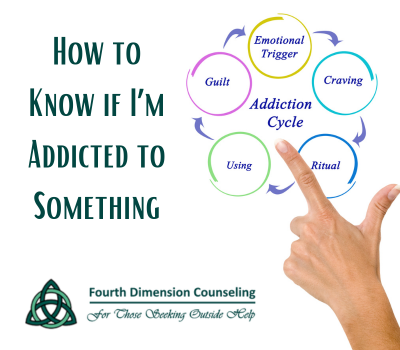 Being addicted to something can cause a lot of physical and emotion problems. Addiction can manifest in various forms, affecting both mental and physical well-being. Whether it’s substance abuse, compulsive behaviors, or unhealthy attachments, recognizing the signs of addiction is the first step towards seeking help and recovery.
Being addicted to something can cause a lot of physical and emotion problems. Addiction can manifest in various forms, affecting both mental and physical well-being. Whether it’s substance abuse, compulsive behaviors, or unhealthy attachments, recognizing the signs of addiction is the first step towards seeking help and recovery.
Signs You May be Addicted
Loss of Control:
One of the hallmark signs of addiction is the inability to control or limit your consumption or engagement in a particular behavior. If you find that you consistently overindulge despite your intentions to cut back, it may be a sign of addiction.
Obsession and Cravings:
Frequent and intense cravings or obsessive thoughts about a substance or behavior are common indicators of addiction. These cravings can become so overwhelming that they lead to compulsive actions.
Neglect of Responsibilities:
Addiction often results in neglecting important responsibilities, such as work, school, or family obligations. If you consistently prioritize the substance or behavior over these responsibilities, it’s cause for concern.
Withdrawal Symptoms:
When you attempt to reduce or quit the substance or behavior, you may experience physical or psychological withdrawal symptoms. These symptoms can range from irritability and anxiety to physical discomfort or pain.
Tolerance:
Over time, people with addiction often build up a tolerance to the substance or behavior. This means that you need more of it to achieve the same effects, leading to an escalation in consumption or engagement.
Loss of Interest in Other Activities:
As addiction takes hold, you may lose interest in activities and hobbies that once brought you joy. Your focus becomes increasingly narrowed on the addictive substance or behavior.
Continued Use Despite Negative Consequences:
Even when addiction leads to negative consequences, such as health problems, strained relationships, or legal issues, you may continue to engage in the behavior or use the substance.
Secrecy and Isolation:
People struggling with addiction often become secretive about their actions. They may isolate themselves from loved ones to hide the extent of their addiction.
Failed Attempts to Quit or Cut Back:
Repeatedly attempting to quit or cut back on the substance or behavior, without success, is a clear sign of addiction. It highlights the loss of control over the addictive element.
Mood Swings and Emotional Changes:
Addiction can lead to emotional instability, with frequent mood swings, irritability, and depression. The substance or behavior may serve as a coping mechanism for emotional distress.
Increasing Time Investment:
You find that more and more of your time is dedicated to obtaining, using, or recovering from the substance or behavior, leaving less time for other aspects of life.
Denial:
Denial is a common defense mechanism for those who are addicted to something. You might downplay the severity of your addiction or its impact on your life, making it challenging to recognize the problem.
Interference with Relationships:
Addiction often strains relationships with family and friends due to erratic behavior, secrecy, and prioritizing the substance or behavior over loved ones.
Financial Strain:
Addiction can lead to significant financial problems as resources are funneled into supporting the addiction, resulting in debts, job loss, or financial instability.
Recognizing addiction is a crucial first step on the path to recovery and a healthier life. If you identify with several of these signs and suspect you may be addicted to something, it’s essential to seek professional help and support from loved ones. Addiction is a treatable condition, and with the right resources and assistance, you can overcome it and regain control over your life. Don’t hesitate to reach out to addiction specialists, counselors, or support groups for guidance and assistance on your journey to recovery.
More Advice:
- Do I Need to See a Counselor for Love Addiction?
- Simple Ways to Reduce Stress
- Sex Victims Can Experience PTSD
- Emotions and How to Process Them
- Sex Addiction Counseling
- How Do I Know it’s Time to Get professional Counseling?
- How to Heal from Betrayal Trauma
- What is PTSD? – (Government Help)
- The Mental Health Effects of Sexual Abuse
- The 4 Types of Intimacy
- 5 Ways to Reduce Stress
- What is Co-Dependency?
- How Same-Sex Couples Counseling is Different
- How to Know it’s Time to Get Mental Help
- How to Find a Great Relationship Counselor
- What if I Can’t Get in to See a Counselor?
